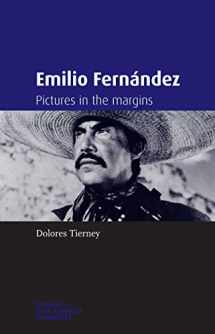
Emilio Fernández: Pictures in the Margins (Spanish and Latin American Film)
Book details
Summary
Description
Emilio Fernández: Pictures in the Margins is the first book-length English language account of Emilio Fernández (1904-1986) the most successful director of classical Mexican Cinema, famed with creating films that embody a loosely defined Mexican school of filmmaking. However, rather than offer an auteurist study this book interrogates the construction of Fernández as both a national and nationalist auteur (including racial and gender aspects e.g. as macho mexicano and indio). It also challenges auteurist readings of the films themselves in order to make new arguments about the significance of Fernández and his work.
The aim of this book is to question Mexico’s fetishisation of its own position on the peripheries of the global cultural economy and the similar fetishisation of Fernández’s marginalisation as a mixed race (part white and part indigenous) director. This book argues that, as pictures in the margins, classical Mexican cinema and specifically Fernández’s films are not transparent reflections of dominant post Revolutionary Mexican culture, but annotations and re-inscriptions of the particularities of Mexican society in the post-Revolutionary era.


We would LOVE it if you could help us and other readers by reviewing the book
Book review



